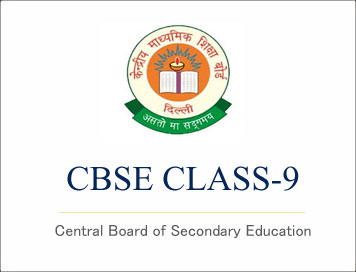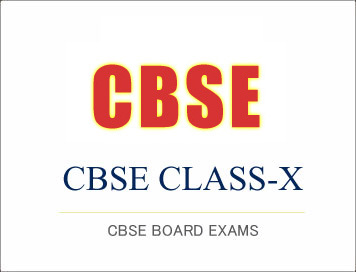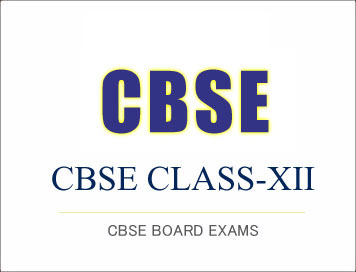CBSE PORTAL : CBSE Class-9 Syllabus 2018-19 (Work Education) | |
- CBSE Class-9 Syllabus 2018-19 (Work Education)
- CBSE Class-10 Syllabus 2018-19 (Hindustani Music)
- CBSE Class-12 Syllabus 2018-19 (Mass Media Studies)
- CBSE Class-12 Syllabus 2018-19 (Multimedia And Web Technology)
| CBSE Class-9 Syllabus 2018-19 (Work Education) Posted: 24 Mar 2018 03:11 AM PDT |
| Section | Total Weightage | Total Periods | |
| A | Self-help Activities | 2 | 10 |
| B | Community Outreach Activities | 3 | 20 |
| C | Pre-vocational Skill Development Activities | 5 | 30 |
| TOTAL | 10 points = A grade | 60 periods |
A. Self-help Activities
Out of the list of activities given below for the Secondary School stage any three are to be completed in class IX and remaining three in class X.
1. First aid activities like counting of pulse, taking of temperature and bandaging of wounds after cleaning them.
2. Preparation of family budget and maintenance of daily household accounts.
3. To be able to know and procure transport facilities from one point to another using online resources or cooperation with local authorities such as Panchayat.
4. Understanding the basic traffic rules and helping traffic police in the regulation of traffic.
5. Helping school authorities in organizing exhibitions, picnics, tours and excursions, school functions, etc.
6. Basic cooking activities.
The total number of periods for performance of the Self-Help activities may be 20 periods for two years at the secondary stage
B. Community Outreach Activities
Out of the list of activities given below choose any two activities, one is to be completed
in class IX and another in class X.
1. Studying the nutrition and health status of people in a village/city/slum/tribal area.
2. Helping in community health programmes for enhancing the nutrition, health and environmental status of the community through door-to-door contact programmes.
3. Volunteer work in hospitals and fairs, during natural disasters and accident, etc.
4. Activities related to sensitization towards needs of differently abled and elderly persons.
5. Activities related to sensitization towards weaker sections of society.
6. Participation in cleanliness drives in schools, community and neighborhood areas.
7. Participation in adult literacy programme.
8. Plantation and care of shady/fuel/ornamental/avenue trees.
The total number of periods for performance of the Community-Outreach activities may be 40 periods for two years at the secondary stage
C. Pre-vocational Skill Development Activities
Work practice at this stage is to take the form of projects with sequential activities in respect of vocations in the production or service sectors. Intensive projects/prevocational courses in diverse need and occupational areas, to be pursued over a span of time ranging from a few months to the entire two-years duration of the Secondary stage, are clearly the answer for this requirement. Such projects/pre-vocational courses are intended to lead to intensive skill formation and proficiency in work which would be conducive to increased productivity and capacity on the part of students to engage in work which enables them to earn while they learn. This emphasis on intensive skill formation is meant to provide a pre-vocational base to the work education programme at this stage and also to serve as ground preparation for the world for those students who terminate their studies after Class X. For those who continue their education at the Senior School Stage, these pre-vocational courses will serve as preparation for vocational courses at the +2 stage.
The total number of periods for performance of the Pre-vocational Skill Development activities may be 60 periods for two years at the secondary stage Choose any two activities of the following: one is to be completed in class IX and another in class X.
Click Here To Download Full Syllabus
Courtesy: CBSE
CBSE Class-10 Syllabus 2018-19 (Hindustani Music)
Posted: 24 Mar 2018 01:41 AM PDT
CBSE Class-10 Syllabus 2018-19 (Hindustani Music)
HINDUSTANI MUSIC VOCAL (Code – 034)
Examination Structure for Assessment
Class X
TOTAL: 100 Marks
Theory
Time: 01 hours : 30 Marks
1. Five questions to be set with internal choice covering the entire syllabus.
2. Out of five questions, one question of composition in notation from the prescribed Ragas will be compulsory.
3. All the questions will carry five marks each.
Practical : 50 Marks
Time: 20-25 Minutes for each candidate
1. Examiners are requested to ask the questions directly related to the syllabus.
2. Marks should be awarded in accordance with the marking scheme.
Distribution of Marks
| Sr. No. | Value Points | Marks |
| 1. | One Vilambit Khayal with simple elaborations in prescribed Raga | 08 |
| 2. | Aaroha, Avaroha, Pakad and Drut Khayal with simple elaborations and few Tanas in each prescribed Raga | 07x04=28 |
| 3. | i. Devotional Song ii. Patriotic Song | 03 |
| 4. | i. Folk Song ii. Tribal Song | 03 |
| 5. | Identification of prescribed Ragas from the passages of Swaras rendered by the examiner. | 03 |
| 6. | Recitation of the Thekas of the prescribed Talas with dugun | 05 |
* Teachers will refer to the distribution of marks while examining the candidate for practical examination.
HINDUSTANI MUSIC
VOCAL (Code – 034)Class X
TOTAL: 100 Marks
Theory
Time: 01 hours : 30 Marks
1. Define the following:
Aalap, Tana, Meend, Kan, Khatka, Murki
2. Describe the following:
Dhamar, Tarana, Thumri, Lokgeet
3. Origin and development of Dhrupad and Khayal.
4. Basic knowledge of the structure and tuning of Tanpura.
5. Detail study of the following Ragas:
i. Bhupali
ii. Khamaj
iii. Durga
iv. Des
6. Ability to do notation of compositions in prescribed Ragas.
7. Brief life sketch and contribution to music of Miyan Tansen, Sadarang and Ustad Faiyaz Khan.
8. Description and Tala – Notation of the following Talas with dugun:
Tilwada, Chautala, Sultala, Rupak.
Practical : 50 Marks
1. One Vilambit Khayal with simple elaborations in any one of the prescribed Ragas.
2. Aaroha, Avaroha, Pakad and Drut Khayal with simple elaborations and few Tanas in the following Ragas:
Click Here To Download Full Hindustani Music Vocal Syllabus
Click Here To Download Full Hindustani Music Percussion Syllabus
Click Here To Download Full Hindustani Music Melodic Instrument Syllabus
Courtesy: CBSE
<< Go Back to Main Page
CBSE Class-12 Syllabus 2018-19 (Mass Media Studies)
Posted: 24 Mar 2018 12:54 AM PDT
CBSE Class-12 Syllabus 2018-19 (Mass Media Studies)
Rationale
In the last two decades changes of phenomenal proportion have occurred in the field of Mass Media Studies. Mass Media has taken a quantum leap forward in terms of scale content and convergence. The media experience is an important part of globalization and civil society. The media has become an indispensable part of life at the national and local level. It has become an important factor in shaping young minds.
Objectives
- Introduction to the comprehensive understanding of the five principles of Mass Media viz, Film, TV, Print, Radio and New Media
- Introduction to the evolution of Mass Media
- To understand how the content and presentation of mass media shapes our thoughts, vision, ethics and action
- Analysis of the ways in which content is created in media
- To understand creative and technical processes involved in newsprint, radio, television production, filmmaking and the internet
- Introduction to the organization of media and entertainment industries - the financial and commercial aspects.
- To delineate the roles and responsibilities of creative, technical and administrative people in media
- To familiarize with the career options in media and entertainment industry
- To analyze the vital importance of mass media in the functioning of a secular, liberal, democracy like India
- To understand the convergence of mass media as the futuristic trend opening up more and more exciting career and creative opportunities
MASS MEDIA STUDIES–XII (Code No. 072) 2018-19
| S. No. | Units | Periods | Marks |
| 1 | Understanding the Language of the Medium | 40 | 35 |
| 2 | Evolution of the Media | 30 | 35 |
| 3 | Convergence of the Media | 40 | 35 |
| 4 | Selling/Marketing/Exhibiting a Product through Advertising | 30 | 35 |
| 5 | Graphic Design and Multimedia Applications | 20 | 10 |
| 6 | Production Skills (Project) | 40 | 10 |
| 7 | Portfolio Assessment (Project) | 40 | 10 |
| 240 | 100 |
UNIT–1: UNDERSTANDING THE LANGUAGE OF THE MEDIUM
40 Periods
Chapter I: Media Literacy
1. Introduction of Media Literacy
2. Introduction to Mass Media
3. Audience Theories
4. Media Ownership
5. Media Representation
6. Media and Violence
Chapter II: Aspects of Film Language
1. The concept of mise en scene
2. Film Analysis
- Short film-fiction(5)
- Short film-nonfiction (5)
- OR
- Feature film
Chapter III: Content Analysis of TV Programmes
- The concept of a soap opera - Daily soap, Weekly soap
- Genres of Soap Opera, primary audience of each genre
- The Segmented nature of the audience
- Gaze of the audience, concept of a flow, continuous interruption
- Culture of Film based programmes
- Culture of Music based programmes
- Educational TV, non-fiction on TV
Chapter IV: Content Analysis of Radio Programmes
- News - the format, the language, frequency
- Talks, magazine programmes-unidirectional nature, feedback with a time phase difference
- Dramas - the unique nature of radio plays
- Interactive programmes - phone in, live interaction, music, experiences, memories as content of these programmes
Chapter V: Content Analysis of Newspapers and Periodicals
- Newspapers –
a) The Macro composition of a daily-various sections like the front page, edit page, sports page, business page.
b) The Micro composition of a daily-proportion of visual and text, language, highlighting.
- Periodicals –
a) The Macro composition of a periodical - various sections like the cover page, cover story, features, columns, business page.
b) The Micro composition of a periodical - proportion of visual and text, language, highlighting.
Click Here To Download Full Syllabus
Courtesy: CBSE
<< Go Back to Main Page
CBSE Class-12 Syllabus 2018-19 (Multimedia And Web Technology)
Posted: 24 Mar 2018 12:43 AM PDT
CBSE Class-12 Syllabus 2018-19(Multimedia And Web Technology)
Learning Outcomes:
- Ability to develop proficiency in Webpage Development and website management
- Ability to develop proficiency in creating dynamic Web Interface
- Ability to write server and client sides scripts and manage websites
- Ability to design a web page using Image, Audio and Video editing tools
- Ability to understand the basic concepts of Open Source Standards and Open Source softwares
- Ability to understand the basic concepts of networking
Class XII (Theory)
Duration: 3 hours
Total Marks: 70
| Unit No. | Unit Name | Theory | Practical | Total | Marks |
| 1 | INTRODUCTION TO DATABASE MANAGEMENT | 20 | 15 | 35 | 05 |
| 2 | NETWORKING AND OPEN STANDARDS | 25 | 05 | 30 | 10 |
| 3 | WEBPAGE DEVELOPMENT | 60 | 45 | 105 | 40 |
| 4 | MULTIMEDIA AND AUTHORING TOOLS | 40 | 30 | 70 | 15 |
| 240 | 70 |
Unit 1: Introduction to Database Management
Introduction to database concepts and its need
Database Terminology: Data, Record/Tuple, Table, Database, field/attribute
Concept of Keys: Candidate key, Primary key, Alternate key, and Foreign key
Examples of common Database Management System: MySQL, Ingres, Postgres, Oracle, DB2, MS-SQL Server, Sybase etc.
Database Tool:
Introduction to MySQL: Using MySQL creating Database and table, defining primary key, inserting records, displaying records using SELECT command, WHERE clause, modifying records using UPDATE, deleting records
Unit 2: Networking And Open Standards
Computer Networking: Evolution of Networking: ARPANET, WWW, Internet
Network Topologies: Bus, Star, Tree
Types of Network: PAN, LAN, WAN, MAN
Click Here To Download Full Syllabus
Courtesy: CBSE
<< Go Back to Main Page
| You are subscribed to email updates from CBSE PORTAL : CBSE, ICSE, NIOS, JEE-MAIN, AIPMT Students Community. To stop receiving these emails, you may unsubscribe now. | Email delivery powered by Google |
| Google, 1600 Amphitheatre Parkway, Mountain View, CA 94043, United States | |


